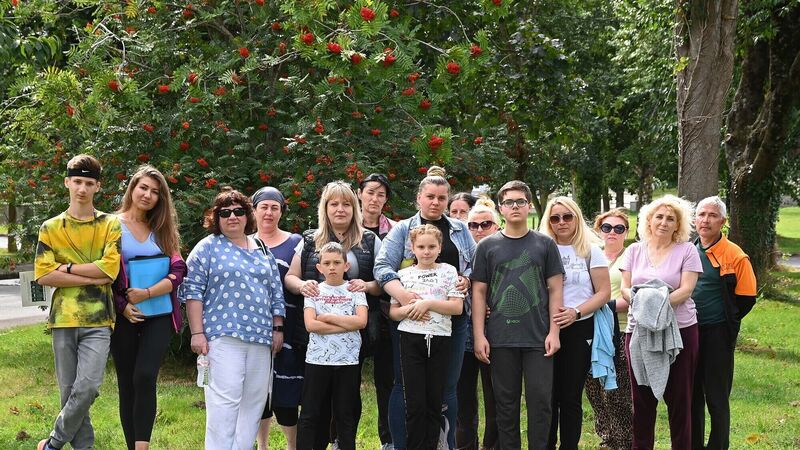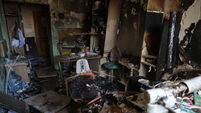From living in Cork City to a sports hall in Clonmel: Ukrainian refugees ask where next?

Some of the Ukrainian refugees who were moved from Cork student accommodation to Clonmel. Picture: Denis Minihane
At a sports club in Clonmel, Co Tipperary, rows and rows of beds are lined up around a vast, windowless hall. About 50 Ukrainians who fled the war in their home country have been temporarily housed here until more permanent accommodation can be sourced. They have no idea when that will be.
The group had been living at a student village in Cork City for the summer months, but the Government contract with that facility came to an end at the weekend.













